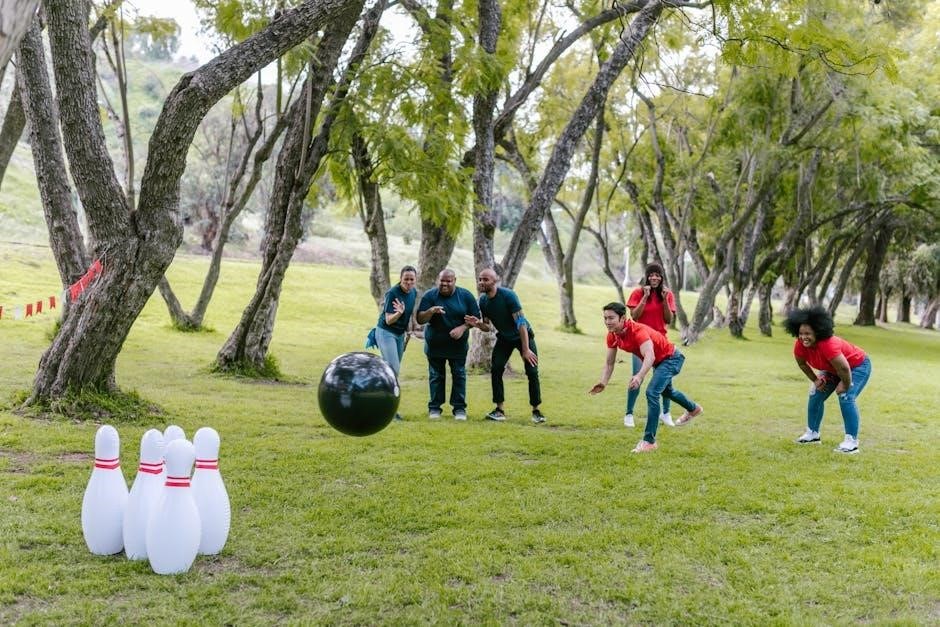Social Skills Worksheets for Adults: An Overview
Are you seeking to enhance your social interactions and build stronger relationships? Social skills worksheets for adults can be valuable tools. These resources offer practical exercises and insights to improve communication and navigate social situations effectively, often available in PDF format for easy access.

Understanding Social Skills
Social skills encompass the ability to interact effectively and appropriately in various settings. They involve reading social cues, interpreting body language, and behaving in a manner that fosters positive relationships. Mastering these skills is essential for personal and professional success, often aided by worksheets.
Definition and Importance of Social Skills
Social skills are defined as the abilities needed to communicate effectively, build relationships, and navigate social situations appropriately. They encompass a wide range of behaviors, including verbal and non-verbal communication, active listening, empathy, and conflict resolution. These skills enable individuals to interact positively with others, fostering connection and understanding.
The importance of social skills extends to various aspects of life. In personal relationships, they facilitate intimacy, trust, and mutual support. Professionally, strong social skills contribute to teamwork, leadership, and career advancement. Furthermore, they play a crucial role in mental well-being, reducing social anxiety and promoting self-confidence.
Individuals seeking to enhance their social skills can benefit from targeted training and resources, such as social skills worksheets. These tools provide practical exercises and guidance for developing specific skills, ultimately leading to improved social competence and overall quality of life. The use of PDF worksheets allows for easy accessibility and convenient practice.
Key Components of Social Skills
Social skills encompass a multifaceted array of abilities, each contributing to effective interpersonal interactions. Communication skills are foundational, involving clear and articulate expression, as well as attentive listening. Non-verbal cues, such as body language and facial expressions, also play a crucial role in conveying messages and interpreting others’ emotions.
Empathy, the ability to understand and share the feelings of others, is another essential component. It allows individuals to connect on a deeper level and respond appropriately to emotional cues. Assertiveness, the ability to express one’s needs and opinions respectfully, is also vital for maintaining healthy boundaries and navigating conflict.
Emotional intelligence, encompassing self-awareness, self-regulation, and social awareness, underlies many social skills. It enables individuals to manage their emotions, understand social dynamics, and build rapport with others. Resources like social skills worksheets, often available in PDF format, can help adults develop these key components through targeted exercises and practice.
Benefits of Using Social Skills Worksheets
Social skills worksheets offer numerous advantages for adults. They improve communication, boost confidence, reduce social anxiety, and enhance relationships. Available in PDF, they provide structured practice for mastering essential social skills.
Improving Communication Skills
One of the primary benefits of social skills worksheets is the enhancement of communication skills. These worksheets, often in PDF format, provide structured exercises to improve both verbal and non-verbal communication. Active listening, a key component of effective communication, is often addressed through specific activities that encourage focused attention and thoughtful responses.
Worksheets may include scenarios that require participants to practice expressing themselves clearly and concisely, while also considering the perspective of the other person. Role-playing exercises, commonly found in these resources, allow individuals to simulate real-life conversations and receive feedback on their communication style. Furthermore, worksheets can help adults identify and modify negative communication patterns, such as interrupting or dominating conversations.
By consistently practicing the techniques presented in these worksheets, individuals can develop stronger communication skills, leading to more meaningful and productive interactions in both personal and professional settings. The structured approach of these materials makes them an invaluable tool for self-improvement.
Boosting Confidence and Reducing Social Anxiety
Social anxiety can significantly impact an individual’s quality of life. Social skills worksheets for adults, often accessible as PDF documents, can be instrumental in boosting confidence and reducing social anxiety. These resources provide a safe space to practice social interactions and develop coping mechanisms for anxiety-inducing situations.
By working through carefully designed exercises, individuals can gradually build their self-esteem and reduce the fear associated with social encounters. Worksheets may focus on identifying and challenging negative thoughts and beliefs that contribute to social anxiety. Techniques such as cognitive restructuring and exposure therapy are often incorporated into these materials, allowing individuals to confront their fears in a controlled and manageable way.
Furthermore, some worksheets include relaxation exercises and mindfulness techniques to help individuals manage anxiety symptoms in real-time. The process of actively engaging with these worksheets empowers adults to take control of their social anxiety and build the confidence needed to navigate social situations with greater ease.
Enhancing Interpersonal Relationships
Strong interpersonal relationships are essential for overall well-being. Social skills worksheets for adults, frequently found as PDF files, can play a crucial role in enhancing these relationships. These resources offer practical guidance and exercises to improve communication, empathy, and conflict resolution skills, all of which are vital for building and maintaining healthy connections with others.
By working through these worksheets, individuals can learn how to actively listen, express their needs effectively, and understand the perspectives of others. They can also develop skills in managing conflict constructively and building trust within their relationships. Many worksheets focus on specific aspects of interpersonal communication, such as assertiveness, boundary setting, and emotional expression.
Moreover, some worksheets provide opportunities for self-reflection and role-playing, allowing individuals to practice and refine their social skills in a safe and supportive environment. The process of actively engaging with these materials empowers adults to strengthen their interpersonal relationships and create more fulfilling connections with family, friends, and colleagues.

Types of Social Skills Worksheets for Adults (PDF)
Social skills worksheets for adults in PDF format are diverse, addressing various areas. These include active listening, non-verbal communication, assertiveness, conflict resolution, and emotional intelligence. Each type aims to improve specific social competencies.
Worksheets for Active Listening
Worksheets for active listening are designed to improve one’s ability to fully concentrate, understand, respond, and remember what is being said. These resources often include exercises that focus on minimizing distractions, maintaining eye contact, and providing verbal and non-verbal cues to show engagement.
Adults can benefit from these worksheets by learning to paraphrase the speaker’s message, asking clarifying questions, and withholding judgment until the speaker has finished. Some worksheets provide scenarios for practicing active listening in different social settings, such as conversations with friends, family members, or colleagues.
The exercises may also involve identifying common barriers to active listening, such as interrupting, thinking about one’s response while the other person is speaking, or becoming defensive. By completing these worksheets, individuals can develop stronger listening skills and build more meaningful connections with others. Ultimately, improving active listening skills can enhance communication, reduce misunderstandings, and foster empathy in personal and professional relationships.
Worksheets for Non-Verbal Communication
Worksheets for non-verbal communication are valuable tools designed to improve one’s ability to understand and effectively use body language, facial expressions, and other non-verbal cues. These worksheets often include exercises that focus on interpreting different facial expressions, recognizing body postures, and understanding the impact of eye contact.
Adults can benefit from these resources by learning to identify non-verbal signals that indicate emotions such as happiness, sadness, anger, or fear. Some worksheets provide scenarios for practicing non-verbal communication in various social settings, like job interviews, presentations, or casual conversations. The exercises may also involve analyzing images or videos to identify non-verbal cues and their meanings.
Furthermore, these resources can help individuals become more aware of their own non-verbal communication and how it affects others. By completing these worksheets, individuals can develop stronger non-verbal communication skills, leading to more effective interactions, improved relationships, and greater self-awareness in social contexts. Ultimately, enhancing non-verbal communication abilities can foster better understanding and connection with others.
Worksheets for Assertiveness and Conflict Resolution
Worksheets for assertiveness and conflict resolution are designed to equip adults with the tools they need to confidently express their needs and navigate disagreements constructively. These resources often include exercises focused on distinguishing between passive, aggressive, and assertive communication styles. By understanding these differences, individuals can learn to advocate for themselves without infringing on the rights of others.
These worksheets typically cover techniques for expressing opinions clearly and respectfully, setting boundaries, and saying “no” without guilt. They may also include scenarios that simulate common conflict situations, such as workplace disagreements or interpersonal conflicts, allowing individuals to practice assertive responses in a safe environment.
Moreover, these worksheets often provide strategies for active listening, empathy, and finding mutually agreeable solutions. By working through these resources, adults can develop stronger assertiveness skills and become more adept at resolving conflicts peacefully, leading to healthier relationships and greater personal and professional success. Enhancing these skills fosters more effective communication and builds confidence in handling difficult situations.
Worksheets for Emotional Intelligence and Empathy
Worksheets for emotional intelligence and empathy focus on enhancing the ability to understand and manage emotions, both in oneself and in others. These resources often include exercises aimed at improving self-awareness, emotional regulation, social awareness, and relationship management skills. By working through these worksheets, adults can develop a deeper understanding of their own emotional responses and learn to recognize emotions in others through verbal and non-verbal cues.
These worksheets typically cover topics such as identifying and labeling emotions, understanding the impact of emotions on behavior, and developing strategies for managing difficult emotions like anger or sadness. They may also include activities that promote perspective-taking, encouraging individuals to step into the shoes of others and understand their feelings and experiences.
Furthermore, these worksheets often provide practical tips for building stronger relationships through empathy and compassion. By practicing these skills, adults can improve their communication, resolve conflicts more effectively, and create more meaningful connections with others, leading to greater personal and professional fulfillment. Developing emotional intelligence and empathy fosters better understanding and stronger interpersonal bonds.

Where to Find Social Skills Worksheets (PDF)
Locating social skills worksheets in PDF format is easier than you might think. Numerous online resources offer free and premium options to suit various needs. Websites dedicated to mental health, therapy resources, and educational materials are excellent starting points. Many practitioners and organizations specializing in social skills training provide downloadable worksheets on their websites.
For free resources, consider exploring websites associated with universities, research institutions, and non-profit organizations. These often offer a range of worksheets covering various aspects of social skills. For more structured and comprehensive materials, explore websites that offer paid resources or consider purchasing workbooks specifically designed for adults seeking to improve their social skills.
Additionally, online platforms dedicated to therapy and counseling often have sections where therapists share worksheets and resources they use with their clients. Remember to search using specific keywords such as “social skills worksheets for adults PDF” to narrow down your results. Always review the source of the worksheet to ensure it comes from a reputable and reliable source. With a bit of searching, you can find a wealth of resources to support your social skills development.

Using Social Skills Worksheets Effectively
To maximize the benefits of social skills worksheets, a strategic and consistent approach is key. Begin by identifying specific social skills you want to improve. Select worksheets that directly target those areas. Before diving in, take time to understand the concepts and principles behind each exercise.
Work through the worksheets thoughtfully and honestly. Reflect on your own experiences and behaviors as you answer questions and complete activities. Practice the skills outlined in the worksheets in real-life situations. Start with low-pressure environments and gradually work your way up to more challenging scenarios.
Regularly review your progress and identify areas where you still need improvement. Consider keeping a journal to track your experiences and insights. Don’t be afraid to seek feedback from trusted friends, family members, or a therapist. Remember that developing social skills is an ongoing process. Be patient with yourself and celebrate your successes along the way. Consistency and dedication are essential for achieving lasting results. Integrate the learned skills into your daily life to solidify your progress and build stronger, more fulfilling relationships.

Leave a Reply